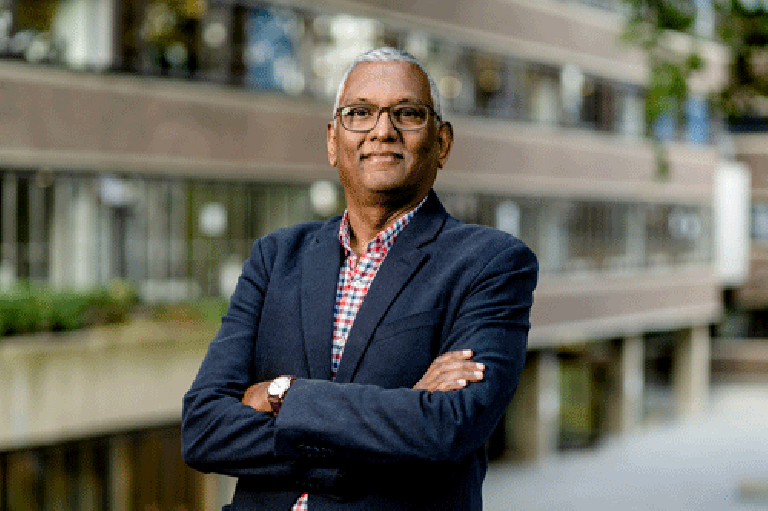Visiting Lecturer spoke at Parliament on auditing failures leading to the collapse of Wilko and discusses the lack of racial diversity in accounting leadership.
By Eve Lacroix (Senior Communications Officer), Published
Protecting the public interest needs to be at the centre of accounting, believes Professor Atul K. Shah, Visiting Lecturer at City, University of London.
An expert in ethical finance in City’s Department for International Politics, Atul’s research focuses on finance, accounting, corporate governance and regulation.
His work is informed by both Jain and Hindu Dharmic traditions and he is the author of the book ‘Inclusive and Sustainable Finance’ (Routledge, 2022).
“I am fortunate to have been raised in a tradition and culture of ethical accounting,” he says. “There are thousands of Jain accountants in the world today.”
Atul is particularly interested in influencing professional practice and is a frequent media commentator, most recently acting as an expert witness in parliament. He writes a weekly editorial for iGlobal News.
Racial diversity in accounting
Racial diversity in accounting has been treated as a “box-ticking exercise”, Atul said to The Mail on Sunday in December, even when professions are a magnet for minorities.
These comments came as a response to the lack of people of colour appointed as directors to the board of the Institute of Chartered Accountants in England and Wales (ICAEW), which is the UK’s leading professional body for accounting.
The lack of racial diversity in upper management is not reflective of the workforce, as a third of staff members in the Big Four accounting groups are Black, Brown or Mixed, but most are filtered out on the way to the top.
“The ICAEW has not been doing enough to fix this issue,” Atul adds.
The collapse of Wilko: auditors protected themselves
In late November, he was invited by the Business and Trade Committee (BEIS) in parliament as an expert witness to share his knowledge during an oral evidence session for the inquiry on the collapse of high street retailer Wilko.
The company, which had existed since 1930, had to close down more than 400 stores and make 12,000 employees redundant when it folded in August 2023.
He says Big Four auditors PwC (which audited Wilko until 2019) and EY (which audited Wilko from 2019 onwards) both played a part in this closure.
“The auditors did not do their job in exercising timely judgement,” he says. “If you look carefully at the way they phrased the audit report, they protected themselves.”
He pointed out contradictory sections of the PwC audit report which said that they could not guarantee a future for the company, and then pointed out that the EY audit report was delayed by nine months – the last deadline to publish a report.
“It was clearly because there were serious problems,” he says, and noted that a Wilko property was then sold for £50 million the day before the audit report was signed.
Discussing ethics in accounting and business, he said:
Atul believes that reform is long overdue in the profession of accounting. He cautions that the Big Four “have a large market share and are very influential”, says that reporting needs to be overhauled, and suggests auditing could be more forward-looking.



